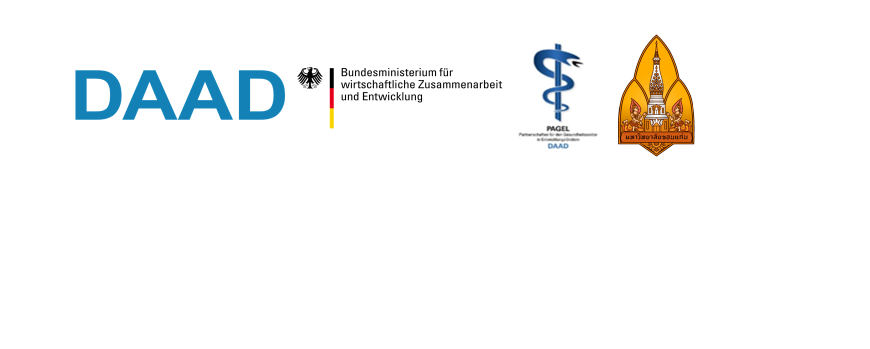Nutrition in Elderly
Khon Kaen University; Khon Kaen, Thailand: July 4th - 8th, 2016
This was the last Summer School in the South East Asian Region under the bigger context of "Life Cycle Nutrition" within the PAGEL project and focused on "Nutrition in Elderly".
Background
The number of older persons – defined as aged 60 and over – is growing dramatically in all countries and will nearly double between 2015 and 2050 from 12% to 22% (WHO). This poses a big challenge to the public health system, which needs to adapt quickly to this change.
For the elderly the longer life span offers a wide range of opportunities, including the pursue of new activities and further education. To take advantage of the additional life time a good health is of utmost importance. A balanced diet and constant physical activity can positively influence many age-related diseases like diabetes and cardiac events and are therefore important factors to ensure a healthy and active ageing.
Since the nutritional requirements change over the course of the adult life and older people are particularly vulnerable to malnutrition, Nutrition in Elderly needs to be of high priority for the public health system and is hence the focus of this Summer School.
Objectives
This Summer School will clarify the specific nutritional requirements in the ageing population and how to measure the current nutritional status using anthropometric and biochemical markers. The lectures will illustrate which non-communicable diseases and degenerative alterations occur with age and how they can be influenced by nutrition. We will discuss present public health strategies and policies addressing healthy ageing and use the interdisciplinary exchange to come up with new approaches and solutions for this.
Highlights
- Expert talks will provide the participants with the newest research findings
- Workshops will ensure a practical approach to the problems and improve the problem solving and presentation skills of the participants
- The interdisciplinary context will offer opportunities for new collaborations to combat the faced problems

